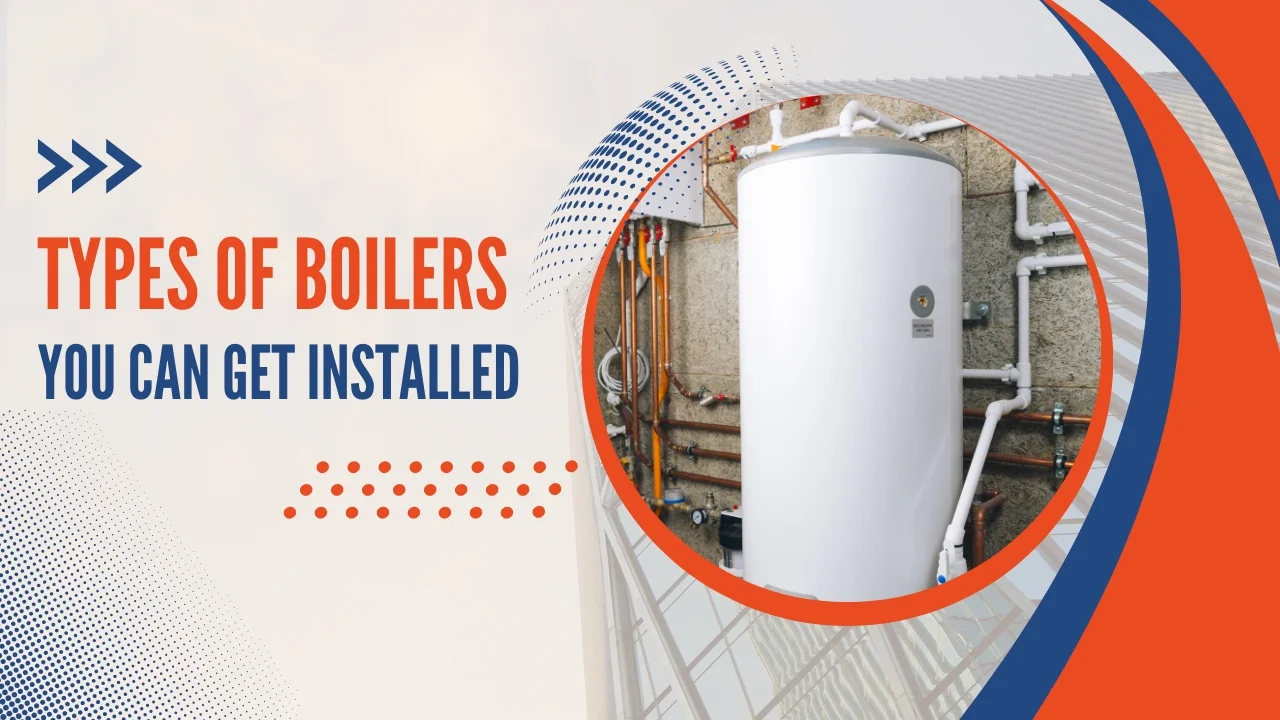Contact Info

When it comes to winter comfort, boilers are the first things that come to mind. Choosing the right boiler is as important as choosing a boiler for comfort. It is essential for a streamlined residential or commercial boiler installation in PA and flawless operation of the unit all winter long. Additionally, only the right boiler can provide you with reliable comfort at a reasonable price. This guide is all about the popular types of boilers, their best uses, and how to choose the right type of boiler for your residential or commercial facility.
Here are some of the popular boiler types based on construction.
Combi boilers have a single, compact unit that provides both central heating as well as hot water in the home. It lacks a separate storage tank and warms the water directly on demand. As they lack a separate tank, they take the least space compared to the other two boiler types in construction.
A system boiler is, in fact, a modern and updated version of a conventional boiler. It features a separate tank to provide a continuous hot water supply. It lacks many of the components of the traditional boilers, like a cold tank, a separate feed and expansion tank, etc. The water is heated by a heat exchanger and stored in the tank until it is needed.
It is a conventional appliance for a warm water supply. It is made of a hot water cylinder and a separate cold water tank. As it possesses many components, it takes significant space for installation. It finds its best application in older homes with high water demands, draining from multiple taps.
Here are some of the popular types of boilers based on the fuel supply.
As the name implies, these boilers use gas as a fuel supply. The gas may be natural gas, propane, or a liquefied petroleum gas (LPG). All of the above-discussed boiler types, such as combi, system, and conventional, can be gas condensing boilers based on the working mechanism and fuel consumption.
Oil boilers are primarily used in areas where there is no access to a gas supply. The oil is warmed, which then heats the water in your home. They are generally expensive than gas boilers and are only preferred in rural areas. The setup and structure are almost identical to those of gas boilers; the main difference lies in the fuel supply part.
They are also called wood boilers or pellet boilers. The names are because of the fuel source it consumes. Wood logs and pellets are burned in the combustion chamber, and the heat is used to warm water. If you lack a gas supply and can’t afford the expenses of an oil boiler, biomass boilers are the perfect and most sustainable option for you.
The choice of boilers directly influences the cost of home boiler installation in PA and the lifespan of the equipment. Here are some of the best tips and tricks for choosing the right boiler type for your space.
Choosing the right boiler type is crucial for enjoying warm showers throughout the cold season. You can select a unit based on its fuel type, structure, or energy efficiency. Consider your comfort needs, your building code and area, and the unique climate of Pennsylvania’s region in which you live.
If you find it hard to choose the best boiler for your home or office, Lehigh HVAC is always here to help. We have spent over 11 years providing affordable HVAC solutions in PA. Our team will conduct a site survey and then suggest the best boiler type for your site. We will also assist you with professional boiler installation that lasts for years. Contact us at 484-961-7044 to book a service or discuss more.